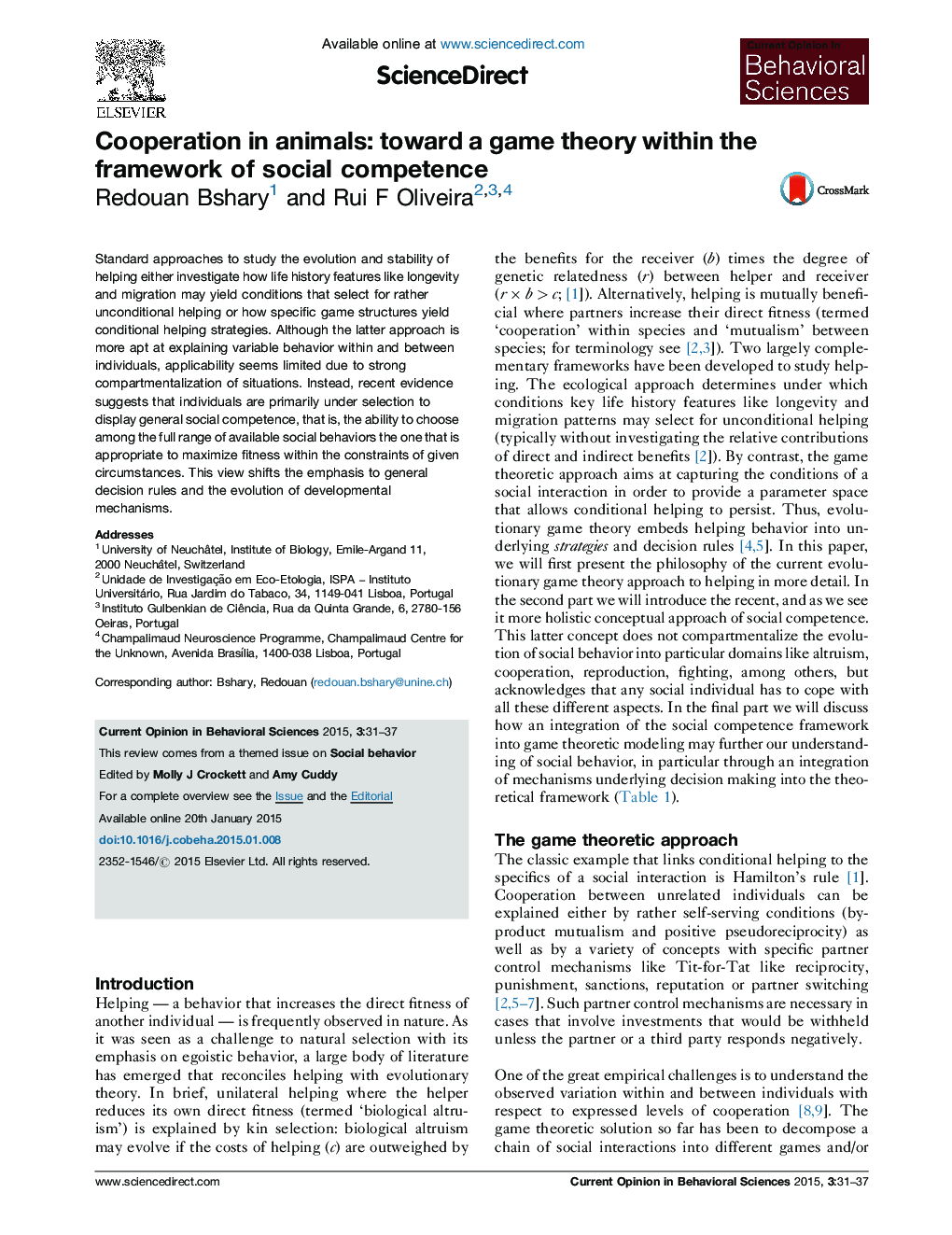| Article ID | Journal | Published Year | Pages | File Type |
|---|---|---|---|---|
| 4316380 | Current Opinion in Behavioral Sciences | 2015 | 7 Pages |
•We summarize in what respect evolutionary game theory has improved our understanding of the evolution and maintenance of cooperation.•We introduce the concept of social competence as a holistic approach to the evolution of social behavior.•We propose that current limitations of evolutionary game theory can be overcome by applying the framework of social competence.•Future evolutionary game theory should incorporate the mechanisms underlying decision making across social contexts.
Standard approaches to study the evolution and stability of helping either investigate how life history features like longevity and migration may yield conditions that select for rather unconditional helping or how specific game structures yield conditional helping strategies. Although the latter approach is more apt at explaining variable behavior within and between individuals, applicability seems limited due to strong compartmentalization of situations. Instead, recent evidence suggests that individuals are primarily under selection to display general social competence, that is, the ability to choose among the full range of available social behaviors the one that is appropriate to maximize fitness within the constraints of given circumstances. This view shifts the emphasis to general decision rules and the evolution of developmental mechanisms.
